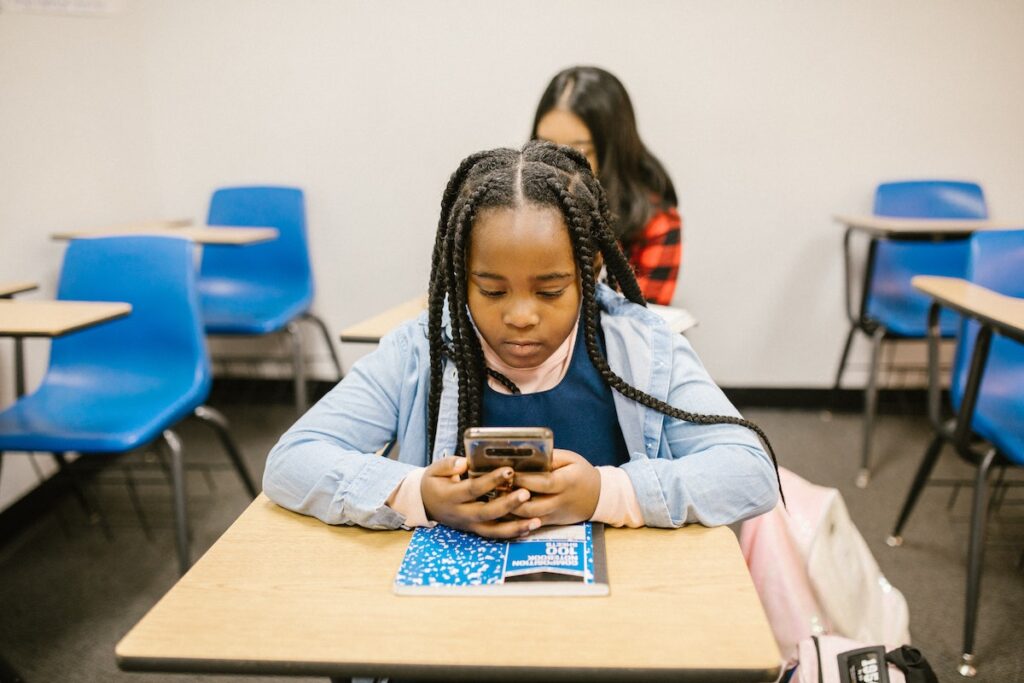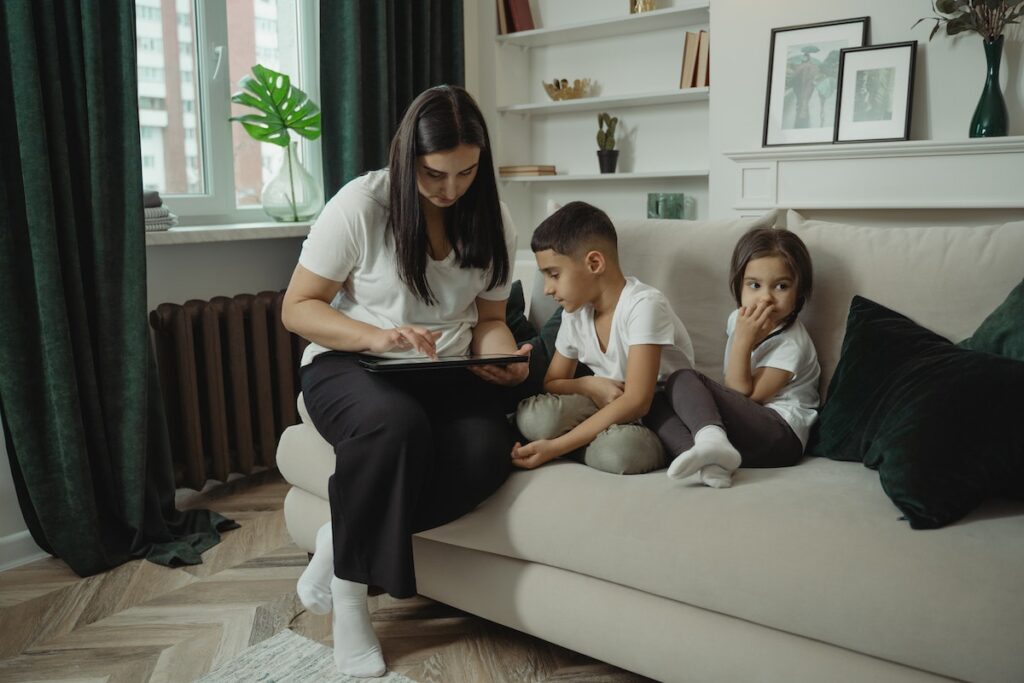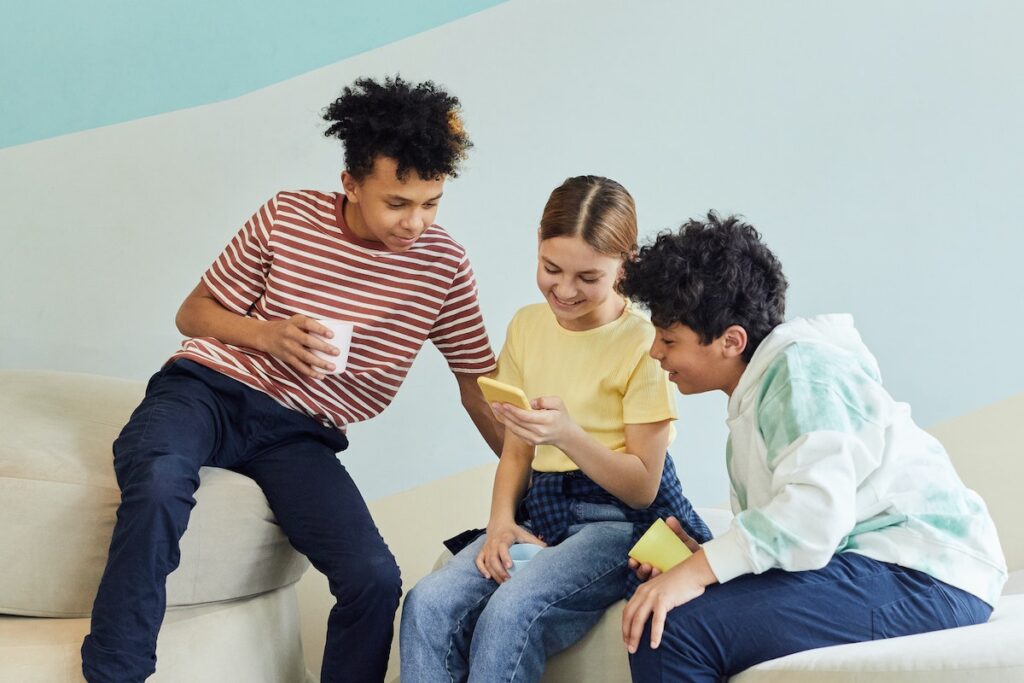What is the impact of social media on children’s mental health? Children’s daily physical and emotional experiences play a significant role in determining their overall well-being. With technology being an integral part of our lives, it affects their well-being in various ways, from their self-representation to their interactions with others, commonly referred to as ‘digital well-being’ or ‘online wellness.’
The concept involves being mindful of how online affects children`s emotions, mental state, and physical health and taking care of themselves and others online. It includes recognizing the impact of online activities and knowing how to handle any negative consequences that may arise.
Children, in particular, are often avid users of social media platforms like Instagram, TikTok, Facebook, and Snapchat. And while these social media have many benefits, they also significantly impact children’s mental health.
In this article, we’ll explore the impact of social media on children’s mental health and provide tips on how to manage it, so continue reading!
Impact of Social Media on Children’s Mental Health
The impact of social media on children’s mental health is a growing concern for parents, educators, and healthcare professionals. With social media’s great influence and impact on children, protecting and managing children’s online use can be difficult. However, you can implement certain strategies and tips to mitigate social media’s impact on children’s mental health.

Let’s discuss the details below:
Online Safety & Cyberbullying
Children can be exposed to inappropriate content and cyberbullying, and predators can use social media to target vulnerable children.
One of the most significant impacts of social media on children’s mental health is exposure to cyberbullying. Cyberbullying is using digital technology to harass, embarrass, or intimidate someone. It can take many forms, such as name-calling, spreading rumors, or sharing embarrassing pictures or videos.
The statistics are quite alarming; studies suggest that cyberbullying a lot of adolescents may have negative effects that can lead to anxiety, depression, and suicide.
Decreased Sleep Quality Due to Too Much Screen Time
Another significant impact of social media on children’s mental health is screen time. A child that spends too much time on social media will more likely to suffer from anxiety, depression, and poor sleep quality.
How can you help your child sleep better?
The APA has provided guidelines for children and screen time, which state that:
- Children below 18 months of age should avoid screen-based media, except for video chatting.
- Parents should select high-quality programming for children between 18 to 24 months and watch it with their children.
- Children between the ages of 2 and 5 should not exceed one hour of screen time per day, and the content should be high quality.
- For children aged 6 and above, parents should set firm limits on the duration and type of media use.
Low Self Esteem and Anxiety
Social media can also negatively impact children’s mental health by increasing anxiety and depression, lowering self-esteem, and negatively impacting body image.
Children are exposed to unrealistic beauty standards, and the pressure to conform to them can lead to low self-esteem and poor body image. A study published on PubMed, social media use is associated with a higher risk of depression, anxiety, and poor body image in young people.
Coping Strategies for Low Self-Esteem and Anxiety
Coping strategies are another essential tool in managing the impact of social media on children’s mental health. Encouraging children to practice mindfulness, exercise regularly, and spend time in nature can help reduce anxiety and depression.
Another 2019 study suggested that meditation can improve well-being by reducing symptoms of depression and anxiety and that healthy emotional regulation is an important mediator of this effect
Parental Monitoring
Parents play a crucial role in managing the impact of social media on their children’s mental health. Parents can monitor their children’s online activity, set limits on screen time, and encourage healthy habits.
It’s crucial to teach children about online safety and monitor their online activity to prevent incidents. According to a study published on NCBI, parents who monitor their children’s online activity are more likely to reduce the risk of online victimization.

Peer Pressure, FOMO (Fear of Missing Out), and Social Comparison
Social media can also lead to peer pressure, FOMO and social comparison. Children may feel left out or pressured to fit in with their peers, leading to anxiety and depression. One study highlights that social media use is associated with higher levels of FOMO and social comparison, which can lead to lower levels of well-being.
How to Manage Peer Pressure and FOMO
Support Networks: Some studies also suggest that social support is associated with better mental health outcomes in young people. So, building a support network is crucial in managing the impact of social media on children’s mental health.
Children should have trusted friends and family members to talk to when they feel overwhelmed or anxious. Encouraging children to join clubs, sports teams, or other social groups can help build a support network and reduce feelings of isolation.
Finally, a digital detox/taking a break from social media can also be helpful. Encouraging children to take a digital detox and spend time doing other activities can reduce the negative impact of social media on their mental health.
Conclusion
With so many risks and dangers associated with social media, it is important to be aware of the impact of social media on children`s health and take steps to protect and manage their online use. Cyberbullying, screen time, anxiety, depression, self-esteem, body image, online safety, peer pressure, FOMO, and social comparison are just some of the negative effects of social media on children’s mental health.
However, by taking steps like parental monitoring, encouraging coping strategies and healthy habits, taking digital detoxes, and building support networks, we can manage the impact of social media and help children thrive.
As parents or caregivers, we should remember that social media isn’t going away, so we must teach our children how to use these platforms safely and responsibly. Encouraging open communication, setting boundaries, and modelling healthy social media habits can go a long way in helping children use social media positively.











